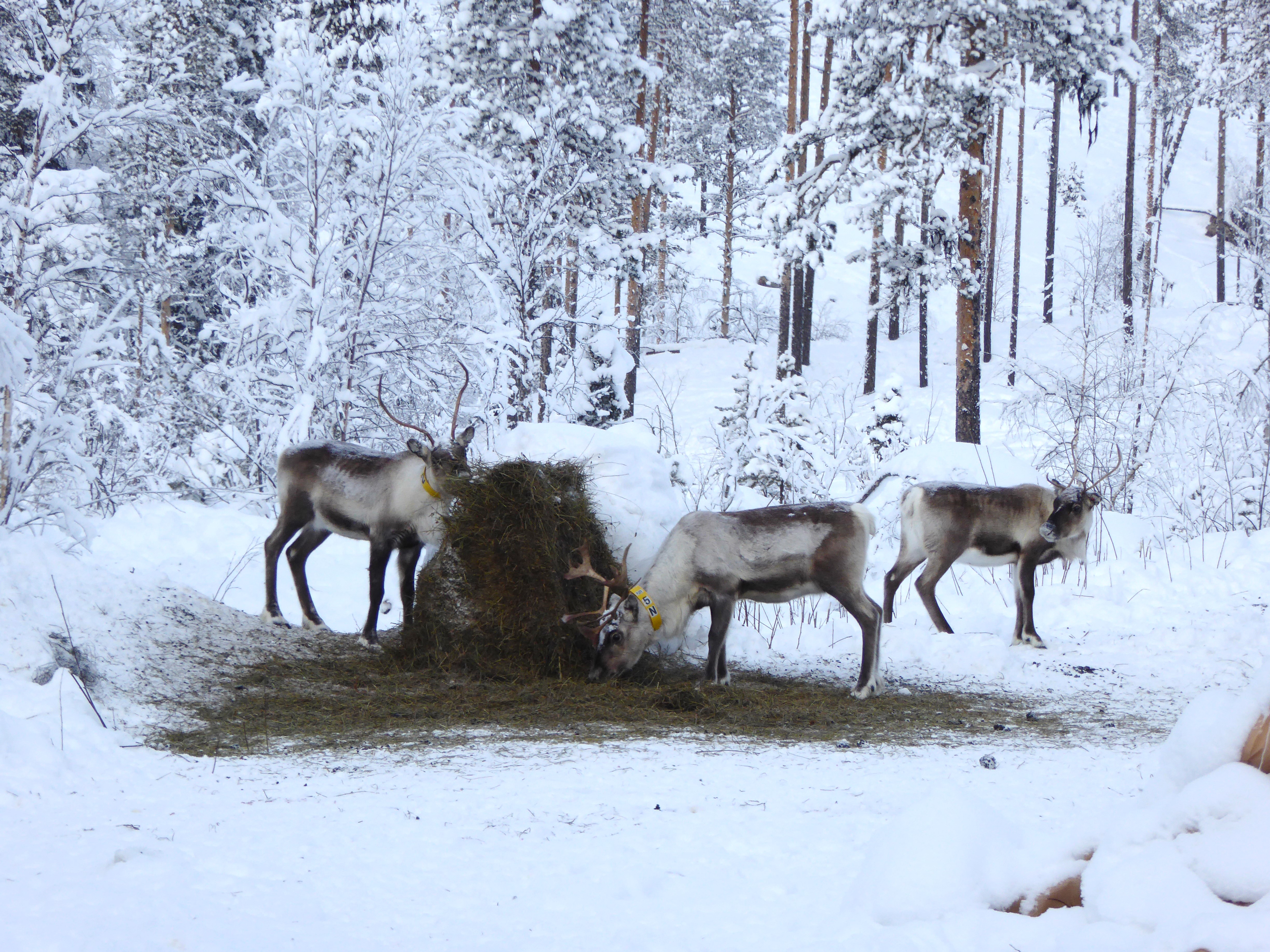Sámi herders fear supplementary feeding is changing the nature of their livelihood
Setting out food for grazing animals is no long-term solution to persistent food shortages, but herders say they don’t have any better alternatives.

There is a reason why the Sámi call it reindeer herding: they let their animals graze, allowing them to sustain themselves on the plants, lichens and mosses that they can forage. The herder’s role is to lead animals to feeding grounds, not to give them something to eat. For the reindeer, this means getting a natural diet; for the herder, it means not having to pay to keep them fed.
Increasingly, however, reindeer herders in the Sámi regions of Norway, Sweden and Finland are being forced to set out food for their animals, and that, they fret, is making the livelihood more akin to farming or ranching. A March 2018 meeting, the write-up of which was published in January, sought to let herders and academics talk about the state of affairs and what can be done about it.
The length of time between the meeting and the release of the write up was due, in part, to a painstaking translation process that involved the three national languages, Northern Sámi and English, according to Tim Horstkotte, an ecologist with Sweden’s University of Umeå and one of the lead organizers of the meeting.
“Several rounds of exchange and translations into several languages took lots of time,” Horstkotte said. “The Sámi translation was important for us, because it is a central part in the culture for Sámi reindeer herders to use their own language.”
[Reindeer herding in Norway: Erna in the reindeers’ den]
One typical situation in which herders must give reindeer supplementary food is when they are not able to penetrate deep layers of snow or thick ice to get at their natural food (a consequence of global warming). Industrial development in the form of mines, wind farms and railways also limits access to grazing land (and for that reason are a source of conflict). In areas where forest industries — important in Sweden and Finland — are active, the vegetation can be changed entirely.
The presence of predators poses another challenge, and a dilemma. Setting up feeding points can allow herders to keep an eye on their animals and ward off attacks. This, they admit, is a benefit of feeding herds, but it also sets off something of an arms race. The more prey that are gathered in a single place, the more predators will be attracted.
None of the reasons why herders resort to supplementary feeding can be expected to go away, but putting food out is not a long-term solution, they say.
First, because it costs money. Second, because feeding reindeer food that has been processed in one way or another can affect their health. Putting it out for them, meanwhile affects the animals behavior. Financial considerations also affect the behavior of herders themselves. Having to pay to feed animals requires decisions about things like herd size and makeup, such as whether to keep females alive after they have stopped reproducing, or the number of males, who have bigger appetites, in their herds.
[Reindeer herders say they will sue to halt Norway’s largest wind farm]
Then there is also public opinion to consider. Consumers have been conditioned to view reindeer as an animal that roams free. If herds are given food part of the year, will that change the way people think of them or the Sámi? The Sámi conception of themselves, and their relationship to their animals, is also at risk of being altered, herders fear.
Herders would prefer not to have to provide reindeer with feed at all, but no suggestions for how to achieve that are under consideration. During the meeting, herders instead discussed how to minimize the impact of supplementary feeding and the effort that goes into it. In the case of the former, by slaughtering reindeer that get too tame on account of it, for example. In the case of the latter: by mechanizing the process. Compensation for the cost of feed helps alleviate part of the most obvious burden. None of these, though, address the root cause.
More talks of this sort may help, and the organizers of the 2018 session suggest keeping the conversation going, both around the table and out in the field.